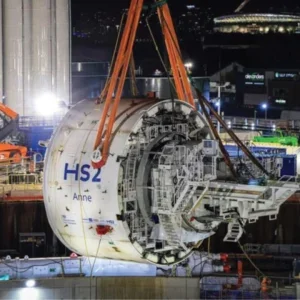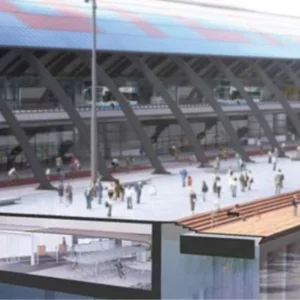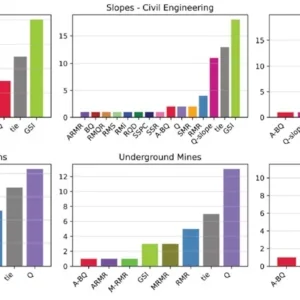Born in Glasgow but raised in the Middle East, Costain’s Angus MacKenzie had considered working in the Middle East, especially since he had originally started working in the oil industry. “That would have been an option then but I don’t think my heart was truly in the oil industry. I like the idea of challenges, building things, difficult things.”
He studied at Cambourne School of Mines, where he earned a diploma in civil engineering before transferring to a degree in mining engineering. He joined Costain in 2003 and since then has worked on a range of UK-based tunnelling projects that use both drill and blast and TBM methods. His first role with the company was as a senior engineer on shaft sinking and microtunnelling in Bath—a drill and blast project—before becoming a project planner on the Saliway BFO job in the Welsh Valleys. From there he became a senior engineer on the Margate and Broadstairs waste water treatment scheme before being dispatched to West Ham where he worked on the waste water project there.
Since May this year he has been a tunnel agent on one of the four machine drives that are at Peacehaven as part of the Brighton and Hove tunnelling scheme (page 23). “Primarily my job is ensuring that the tunnelling machine is being used at optimum efficiency. To do that I oversee a number of people such as mechanical and electrical foremen, engineers, shift bosses,” he explains. “All we’re trying to do is make sure the TBM is working correctly, it’s getting serviced correctly, everything is safe and we’re building a quality product and ensuring client satisfaction and happiness.”
Despite there being green fields at the back of Peacehaven, it’s a very constricted site. “The tunnelling compound, the area available to us is more akin to an urban site,” he says. “We’re working to a tight programme,” he explains. “But it is a nice environment, we’re out in the country effectively. Even though we’re surrounded by a big construction site we’re surrounded by lots of landscapes and hills that ultimately you won’t be able to see what we’re building here unless you drive down the access road.”
Angus and his team are very conscious of the effect they may potentially have on the local population. “We actively monitor everything we do in terms of noise, dust emissions and any other environmental aspects. We work closely with Sussex County Council to ensure that we don’t step over the mark in any of the planning limits that we have.”
The job has also presented Angus with something else to be aware of. “One of the curious things about this job is that there is actually a planning restriction on ground bore noise and vibration for the tunnel boring machine itself,” he says. “This isn’t something I’ve come across before. Normally there is a general nuisance value but here we appear to actually have to meet strict limits, which will prove to be a challenge in the future.”
As it is for many people in the industry, moving around to work on different projects is a crucial part of the job, though much of Angus’ work history is UK-based. “When I joined Costain I lived down in Somerset but it was rare to have large tunnelling jobs in that part of the country, a lot of them are based in the South East,” he explains. “About two years ago we moved to Canterbury which is reasonably easy access to London.
“For this job, four of my colleagues and I are renting a house. We get paid a subsistence amount that allows us to live somewhere similar to home – it’s not quite the same as going home at night but it’s better than being in a hotel,” he says, before adding, “the five of us do get on quite well, there’s no bickering.”
Where will he be in the future? “I don’t know – whatever rears its head and there’s a whole heap of stuff we’re looking into. National Grid, Crossrail and something in North Somerset to do with a power station, and I have no doubt there will be all sorts of London Underground station refurb work.”






